Introduction
- The main aims of the presentation:
- Determining the roles and characteristics of a leader and a manager.
- Highlighting the differences between them.
- Application of relevant theories, concepts, and approaches.
Nissan Motor is one of the leading global company founded in Japan and engaged in the automotive industry, offering a wide range of automobiles and spare parts for them. To meet ever-changing market requirements, not only should Nissan implement various plans and strategies to achieve particular goals, but also have both competent management being able to realize the outlined policy. In this regard, the company should hold a precise idea about the roles and functions of both management and leadership, their differences, and main tasks. Therefore, this presentation aims at determining and comparing the different roles and characteristics of a leader and a manager with highlighting the differences between them. In addition, for better understanding and explanation of roles of management and leadership, relevant theories, concepts, and approaches will be applied.
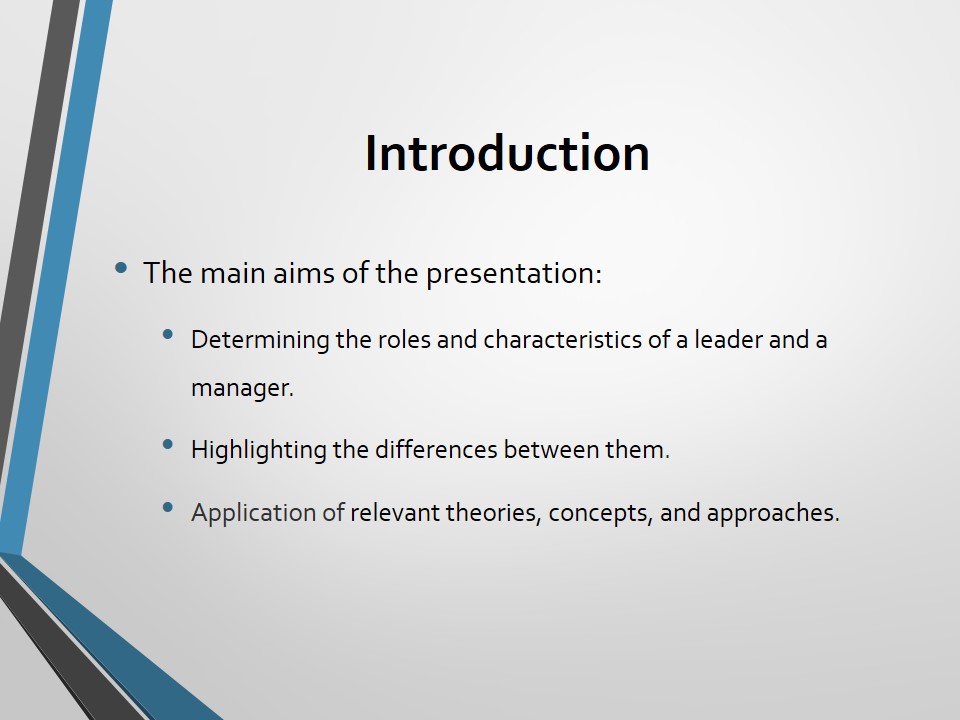
Functions of a Leader and a Manager
- Manager:
- Planning;
- Organizing;
- Leading;
- Controlling;
- Leader:
- Motivation of employees;
- Team-building;
- Link between management and workers;
- Suggesting;
- Representing.
In many business environments and companies, the concepts of leadership and management are often confused and used interchangeably. However, although these concepts are interrelated, there is a clear distinction between their functions and characteristics. In this context, the primary roles of a manager are planning, that is, setting goals, organizing, that is, delegating tasks and coordinating the work process, and controlling, namely, supervising and implementing mechanism for achieving objectives. Besides, being a manager should influence workers, that is, lead them toward realizing tasks. On the other hand, the leader’s central roles are motivating employees, team building, namely creating a conducive work environment and the sense of collectivism, and being intermediary between the top management and workgroup. Additionally, a leader should propose ideas and solutions, consult the members of staff about work-related issues, and be representative of a company or a particular group.
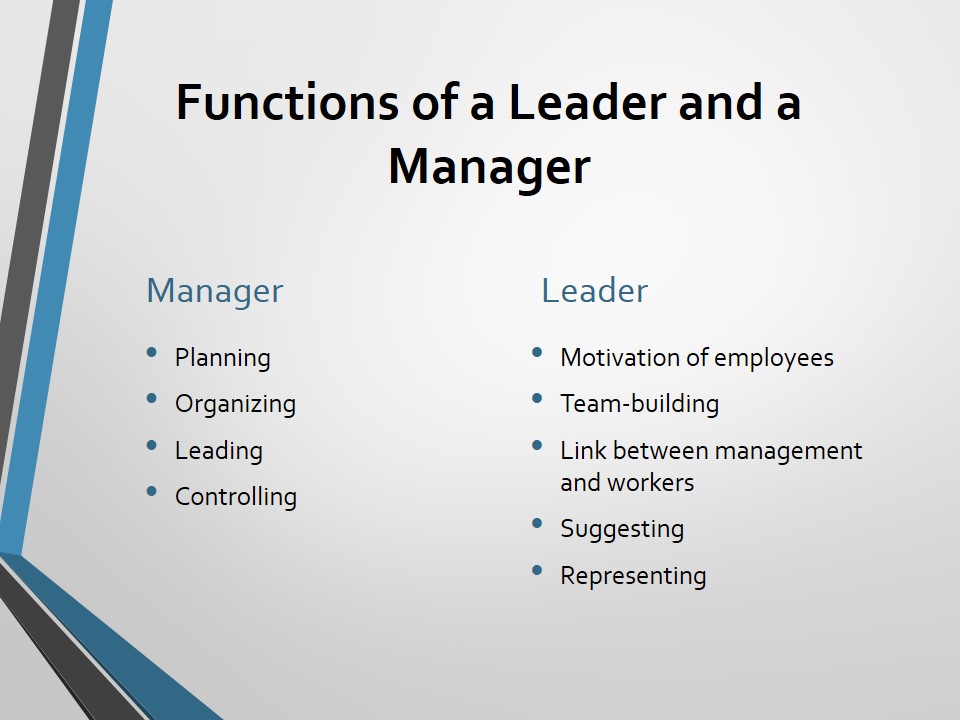
Abilities of a Leader and a Manager
- Manager:
- Decision-making;
- Technical, administrative, and interpersonal skills;
- Scheduling;
- Leader:
- Learning and understanding;
- Communicating;
- Problem-solving;
- Commitment to a goal;
- Awareness.
Regarding the skills that a manager and leader should possess, it should be indicated that there also dissimilarities. Management is related to the ability to coordinate and organise different company’s resources, including labour force, material and human resources to realise the objective in a due manner. More precisely, a competent manager should have such abilities as decision-making, technical, administrative, and interpersonal skills, and scheduling. At the same time, leadership is mainly attributed to the capability of creating an ambience that stimulates others and makes them passionate towards a shared aim. More specifically, leadership is characterised with skills such as learning and understanding technical issues, communicating, problem-solving, and influencing on others. In addition, a leader should possess a commitment to a goal and awareness, that is, the ability to evaluate the significance of own and others actions, situation, and event.
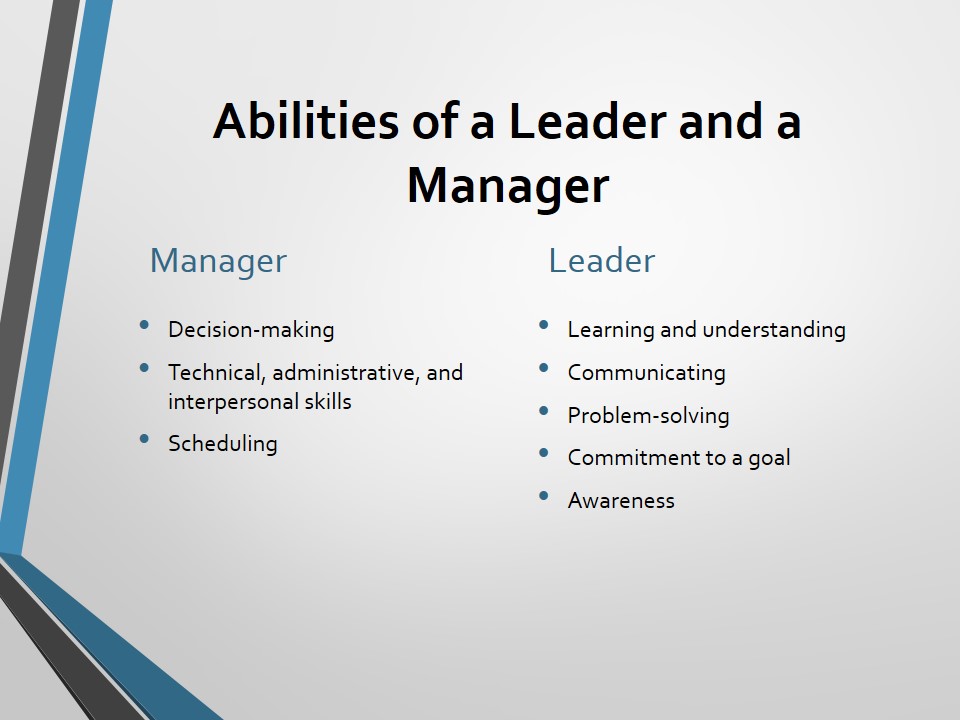
Market Price Fluctuations
- Functions of a manager:
- Develop a relevant strategy;
- Delegating task on middle management;
- Enlisting and allocating all necessary resources;
- Roles of a leader:
- Outline a clear vision;
- Represent the plan to employees;
- Create a favourable environment.
Since Nissan deals with manufacturing automobiles, its revenue significantly depends on tendencies occurring in the fuel market; for example, an increase in the oil price can result in falling demand for cars. According to the contingency theory, there is no universal best way that can handle a particular situation and the success of the organisation is determined by appropriate managerial responses to internal and external changes. In this context, the role of top management is to develop a relevant strategy that adequately responds to market price fluctuations. The senior management also may bring specific adjustments in the current policy to make the company resistant to price jumps in oil. To implement changes, the CEO should delegate all the necessary tasks to the middle management and draw and allocate the required resources.
The situational leadership theory states that there no “best” style of leadership, and thus, the leader’s success is contingent upon the ability to adapt their behaviour to a specific situation. According to this theory, a leader should outline a clear vision about potential risks, solutions, and tasks and represent this to his or her employees. Besides, a leader should create a favourable environment that stimulates workers for excellent results, facilitates the relationship within the staff, and enables employees to mature and develop in their professional field. It also should be added that one of the possible solutions in this situation may be designing and producing new fuel-saving car models or electric cars.
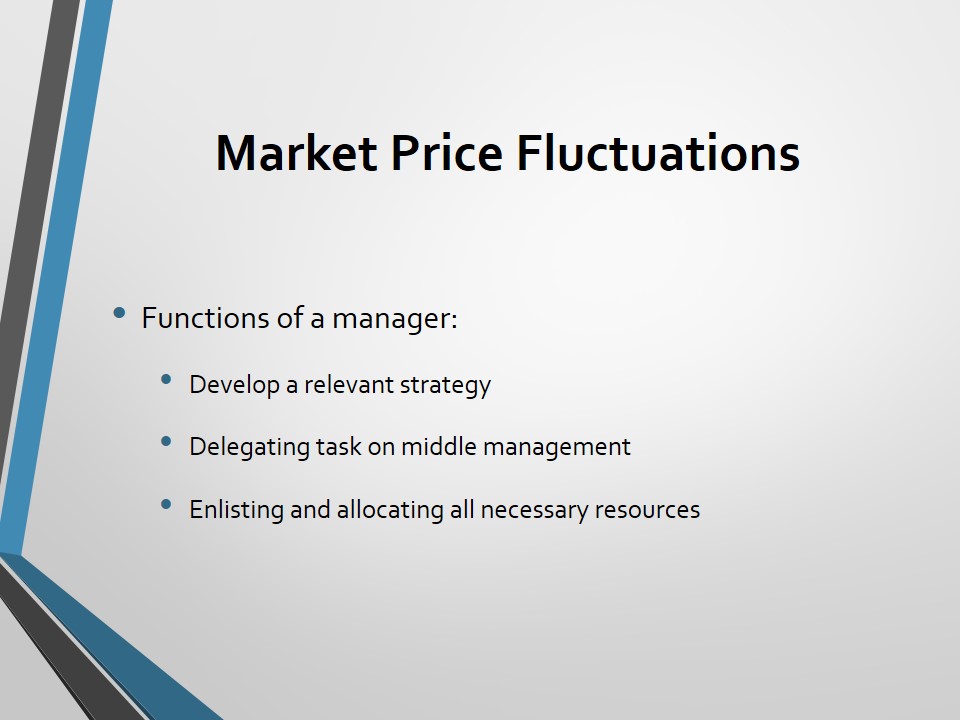
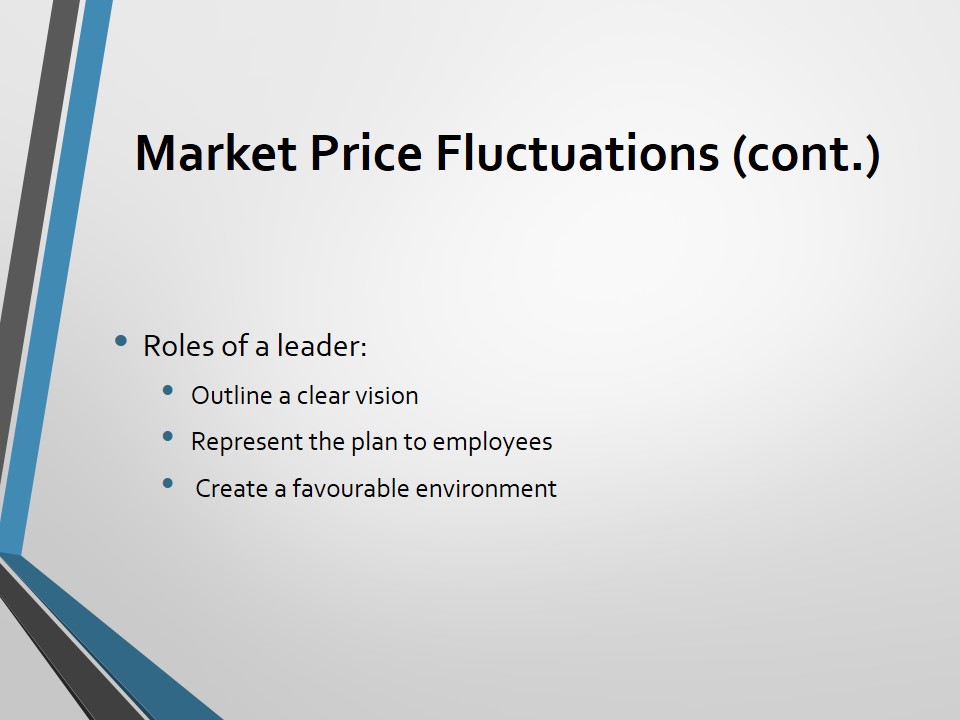
Severe Competition
- The company’s management should:
- Build a healthy corporate culture;
- Develop a robust relationship among workers;
- Provide their employees with all the needed means;
- A leader should:
- Involve stakeholders who share a common goal;
- Provide comprehensive cooperation and mutual accountability;
- Promote learning, trust-building, decision-making among stakeholders.
In the conditions of cut-throat competition, Nissan corporation always faces various challenges and intense pressure from its main rivals, including Honda and Toyota. According to Mayo’s behavioural management approach, the employees’ performance, and hence the productivity of a company, depends more on the social setting, in which workers take place, and human relationship than economic incentives. In other words, the better employees are valued and concerned, the better they fulfil their duties. Therefore, to withstand aggressive situations, the company’s management should build a healthy corporate culture with a robust relationship among workers and opportune atmosphere. Moreover, a manager should take care of providing their employees with all the needed means that facilitate the working process and ensure safety.
In a competitive environment, the business has to develop new methods to improve its performance. According to Dreier et al. (2019), the systems leadership is a contemporary instrument, the central focus of which is placed on collaborative leadership that catalyse and sustain the process of systems-level change. In other words, this approach implies building unions of diverse stakeholders around a shared vision for an objective, providing comprehensive cooperation and mutual accountability to ensure sustainability. Thus, Nissan should promote the involvement of all stakeholders, who share a common goal, in the process of learning, trust-building, decision-making to address a particular challenge.
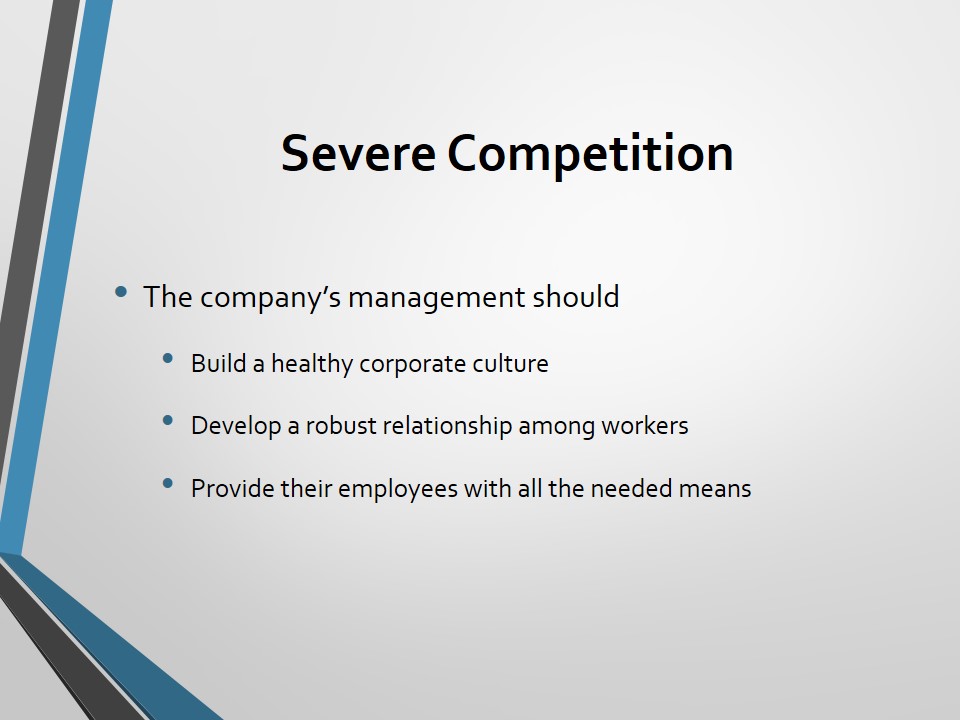
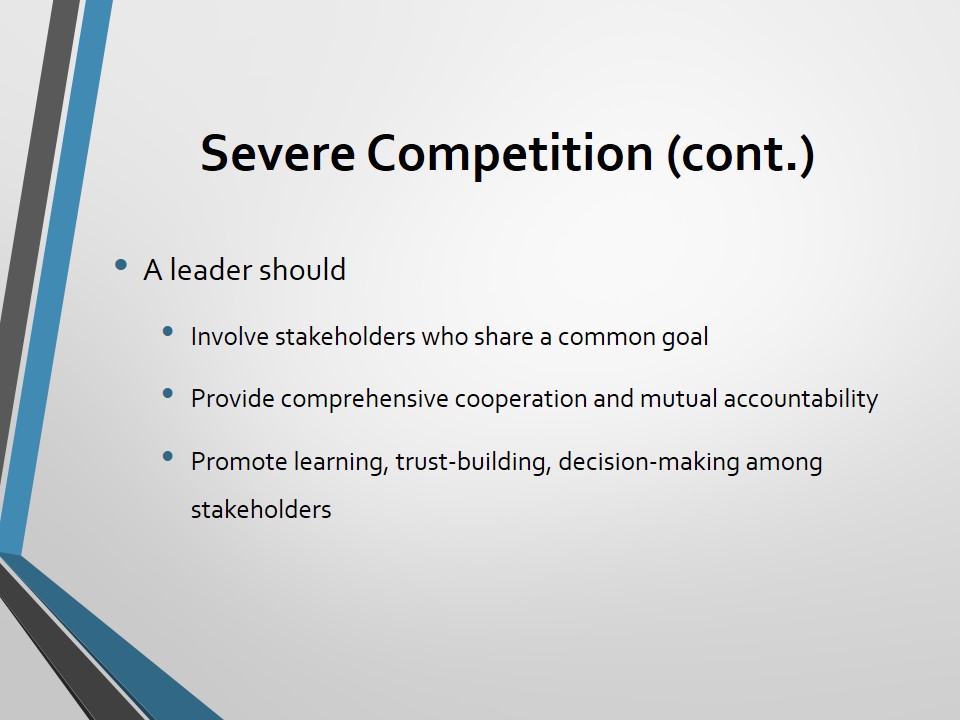
Conclusion
- The presentation has discussed:
- The differences between the roles of leadership and functions of management;
- The abilities and skills that both manager and leader should possess;
- Recommendations for the future:
- Involve all stakeholders in working process;
- Provide appropriate treatment towards its employees.
In summary, the presentation has discussed the differences between the roles of leadership and functions of management, applying different theories such as the contingency theory, situational leadership, Mayo’s behavioural management approach, and the systems leadership. In addition, the abilities and skills that both manager and leader should possess have been defined as well. It should also be added that a manager can impact an organisation via right planning, organising, and coordinating corporate resources, while a leader should focus on stimulating employees and formulating the right vision. Finally, it can be recommended for the company to involve all stakeholders in working process and decision-making and provide appropriate treatment and respectful attitude towards its employees to ensure excellent performance
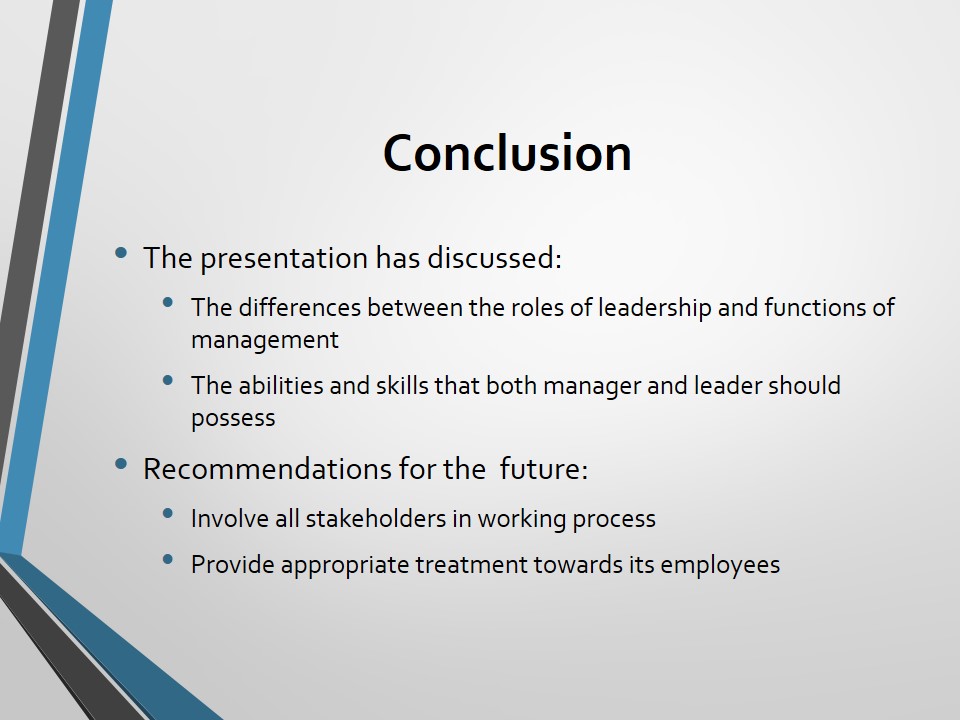
Reference
Dreier, L., Nabarro, D., & Nelson, J. (2019). Systems Leadership for Sustainable Development: Strategies for Achieving Systemic Change. Harvard Kennedy School.